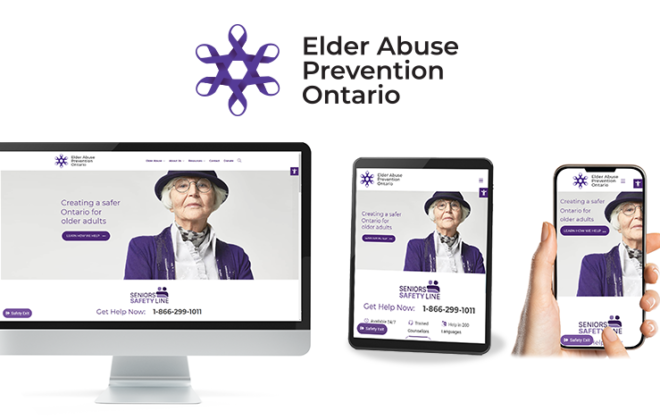Depression in Older Adults
If you have a sad, despairing mood that lasts for more than two weeks, it may be depression.
Depression is not the same as sadness, though it can be triggered by the sadness caused by loss (e.g., loss of a loved one, loss of hearing), stress or major life change (e.g., retirement, moving). Depression can also be caused by some medical conditions, such as chronic pain, thyroid problems, stroke or Alzheimer’s disease. Certain medications and alcohol use can cause depression as well. Depression may also develop for no apparent reason.
People who are depressed cannot just “get over it.” Depression is a biological illness caused by a chemical imbalance in the brain. It affects thoughts, feelings, behaviour and physical health.
Older adults who are depressed may have had episodes of depression throughout their lives, or they may have their first episode late in life.
Depression can affect anyone at any age, but is often not recognized in older adults. This is because some signs of depression can be mistaken for signs of aging, and also because older adults who are depressed may not complain about feeling low. When left untreated, depression may continue for weeks, months or even years. Untreated depression is the main cause of suicide in older adults.
What are the signs of depression?
People often think that depression in older adults is a normal response to the losses of aging. When they say, for example, “It’s no wonder he’s depressed, he’s 82,” or “If I had arthritis, I’d probably be depressed too,” they may mean well, but depression is not normal.
An older adult may be severely depressed if he or she:
- does not get dressed
- does not answer the phone or the door
- loses interest in activities he or she used to enjoy
- expresses feelings of worthlessness and sadness
- has unusual outbursts of crying, agitation or anger, or shows little emotion
- sleeps poorly or too much
- eats more or less than usual
- complains about physical symptoms that do not have a cause
- lacks energy, is often tired
- seems confused
- has difficulty concentrating
- has trouble remembering things
- has trouble making decisions or following through with plans
- spends more time alone
- talks about suicide.
What can I do about depression?
Get help: Depression deserves the same care and attention as any other medical condition. There is no shame in seeking help. Treatment options for depression include antidepressant medications, available from a family doctor, and counselling. Both can be very effective. Older adults who are contemplating suicide should speak to their doctor or go to the nearest hospital emergency department.
There are also many things older adults can do on their own or with family and friends to prevent or lessen the effects of depression.
Be active: Exercising the body helps to lift the mood. Even taking a short stroll or joining a local aquafit class can help to make the world seem a brighter place.
Think positively: Instead of thinking about what you could have done differently in life, think about what you’ve done right. Remember your strengths and how you overcame challenges in the past.
Eat well: Food is your fuel. When you eat nutritious healthy foods in the right amounts, it can boost your strength and help you feel well.
Get involved: When you enjoy what you’re doing, you enjoy life. Rekindle your interest in activities you used to enjoy or find new ones.
Manage stress: Think back on stressful times in the past and how you got through them. Can you use the same techniques again, or is it time to try something new?
Avoid alcohol: Having a drink may seem to make you feel better for a short while, but alcohol can actually worsen depression. Being active, enjoying others and eating well can give you a natural high that won’t have negative effects.
Spirituality: Seeking answers about life and coming to peace with the past and the present can improve your perspective on life. Examining your faith can involve returning to your roots, finding fellowship in an organized religion or seeking understanding outside a traditional religion.
Where can I get help or get more information?
For information and referral to mental health services available in Ontario, contact the Mental Health Service Information Ontario toll free at 1 866 531-2600. This free and confidential service is open 24 hours a day, seven days a week.
Information about depression and other mental health problems, and about resources and support available in your community is available from the Canadian Mental Health Association, Ontario, 1 800 875-6213, and the Mood Disorders Association of Ontario, 1 888 486-8236.
Article originally appeared at: https://www.camh.ca/
Author: The Centre for Addiction and Mental Health (CAMH)





